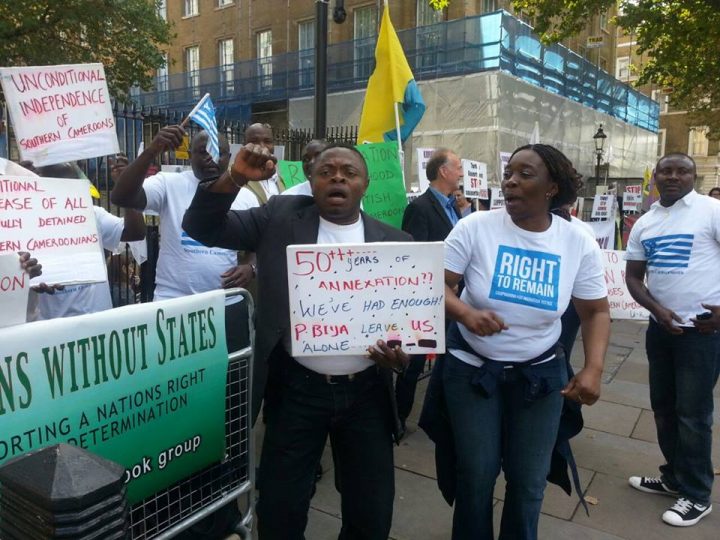By Anderline Amamgbo
Protests have started In the majority English speaking southern region of Cameroon, demanding an end to the use of French in the courts and in the school system. The protests started in October 2016, When a group of English-speaking lawyers took to the streets of Bamenda, capital of the Northwest Region, to protest against the use of French in the courts and the lack of English versions of some legal acts and codes.
The government’s response was fierce: arrests, intimidation and at least two protesters killed in December in the city, the main reference for English speakers, when police opened fire using live ammunition to crush the protests.
Protests continued throughout November with lawyers striking in both the Northwest and Southwest, the two English-speaking regions of Cameroon, inhabited by 3.2 million people.
Recently the Minister of Territorial Administration banned the activities of the Southern Cameroon National Council (SCNC) and the Cameroon Anglophone Civil Society Consortium (CACSC). The president of the CACSC, Barrister Nkongho Felix Agbor-Balla, and its Secretary General, Dr. Fontem Aforteka’a Neba, were arrested. On the same day both Agbor-Balla and Dr. Fontem Neba had signed a statement calling for protest activities to be carried out without violence.
According to Amnesty International these two men have been arrested solely for the peaceful exercise of their right to freedom of expression. This flagrant disregard for basic rights risks inflaming an already tense situation in the English-speaking region of the country and is clearly an attempt to muzzle dissent.
The Association of Northwest Cameroon alleged that the Cameroonian police used tear gas to disperse the lawyers. This alleged police reaction sparked further demonstrations in anglophone Cameroon, with people calling for independence.
Southern Cameroons was the southern part of the British Mandate territory of British Cameroons in West Africa. Since 1984 it has been part of the Republic of Cameroon, where it makes up the Northwest Region and Southwest Region. Since 1994, pressure groups in the territory have sought independence from the Republic of Cameroon, and the Republic of Ambazonia was declared by the Southern Cameroons Peoples Organisation (SCAPO) on 31 August 2006. In 1972 a new constitution was adopted in Cameroon, replacing the federal state with a unitary state.
The “Cameroon Anglophone Movement” was created in 1984. People originally sought to return to a federal system, but eventually started calling for independence.
Reasons behind independence calls
“This is not an issue that began with the lawyer protest in October 2016, but it started in 1961. When the Southern Cameroons territories were annexed to modern-day Cameroon,” said Ngu Tatih, from the Ambazonia Governing Council. Ambazonia is a term used to identify the movement that seeks the restoration of Southern Cameroons. Pro-independence groups argue that UN Resolution 1608, passed in April 1961 was not implemented.
“In 1961, our people were given two choices and we decided to join Cameroon and created a confederation. We did not decide to create an alien government for our people, as eventually became the case. People in Ambazonia (Southern Cameroons) are calling for independence without pre-conditions. We are calling on the international community to intervene on this matter, before it gets worse,” Tatih continued.
Amnesty International in a press release called on the Cameroonian authorities to release immediately and unconditionally the two civil society leaders arrested in the English-speaking part of the country, and lift the ban on their organization.






